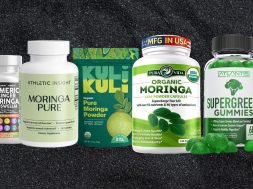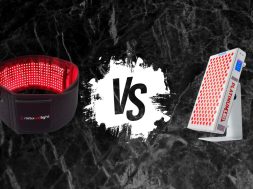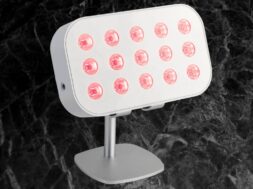
In the bustling world of nootropics, it’s tough to discern which supplements truly deliver on their promises. That’s where Nooceptin, the latest offering from SAP Nutra, enters the spotlight.
It’s hailed as a professional-level brain pill designed to enhance memory, learning, and motivation. Here’s my experience after taking Nooceptin for 30 days.
Pros
- Nooceptin is designed to improve memory, attention, and overall cognitive function. Although most of its ingredients are speculative and some are underdosed, I found brain-boosting benefits when I used it.
- It’s stimulant-free, so you can take it any time of day. There’s no instant euphoric boost with a subsequent crash.
Cons
- Many ingredients are potentially underdosed, which may not give you the brain-boosting effects you seek.
- It is one of the more expensive nootropics available at $2.30 per serving.
- No data indicates the effectiveness of the Nooceptin formula. However, this isn’t a red flag, as most companies that have this data conduct in-house, non-peer-reviewed research.
Quick Verdict
Nooceptin may give you cognitive benefits but many ingredients are underdosed and speculative.
Our #1 nootropic of choice is Mind Lab Pro. It’s formulated with an effective stack of nootropic ingredients without any stimulants so you can take it any time of day to improve cognitive function in the short and long term.
What Is Nooceptin
Nooceptin comprises high-quality, research-backed ingredients that elevate mental clarity, focus, and cognitive capacity.
Unlike many supplements that flood the body with stimulants, Nooceptin operates on a more nuanced level to support brain health. It leverages the synergy between its components to offer a sustained boost without the crash commonly associated with caffeine-heavy products.
The company behind Nooceptin is SAP Nutra, which also manufactures Vyvamind, a very effective nootropic supplement.
Nooceptin doesn’t offer a quick fix. Instead, it provides a lasting impact. Traditionally, many nootropics take effect immediately, but that’s all they offer. With Nooceptin, most testers begin to feel a difference after 7-14 days, indicating its gradual and long-term action.
Nooceptin
Nooceptin Nootropic Brain Supplement
Non-Stimulant Nootropic For Long-Term Change
Boost brain power & reduce cognitive decline.
CHECK CURRENT DEALSNooceptin Ingredients
Lion’s Mane Extract (Speculative)
Lion’s Mane mushroom (Hericium erinaceus) contains compounds that promote nerve growth factor (NGF) synthesis, which is crucial for nerve cell growth and differentiation [1].
Studies have shown that Lion’s Mane enhances cognitive functions, especially memory, and brain cell regeneration [2].
It’s known for its neuroprotective properties, which are potentially useful for treating disorders like Alzheimer’s disease and cognitive impairment [3].
Regular consumption is linked to improvements in mental functioning, memory, and mood [4].
While the mushroom doesn’t directly enhance cognitive functions, it boosts NGF, improving brain health [5]. Dosage varies, but it’s generally well-tolerated with minimal side effects.
Typically, you want to avoid mycelium as the active compounds are in the main mushroom. Lifetime mushroom researcher Jeff Chilton explains this in the podcast below:
Citicoline (Speculative)
Citicoline is frequently mentioned regarding memory enhancement. According to research, 500 mg daily may increase episodic memory or the ability to recall personal experiences and specific events, particularly in older persons [6].
Other research suggests that ingesting at least 500 mg of this supplement daily may provide cognitive benefits to healthy people [7].
200 mg of Citicoline is used in the formulation of Nooceptin. This dose may not achieve the full potential seen in research advocating more than a double dose.
Rhodiola Rosea Extract (Speculative)
Rhodiola rosea is a plant used in herbal medicine known for its adaptogenic properties, which help the body manage stress. It contains active compounds like salidroside and rosavin, which protect brain cells.
Studies suggest that Rhodiola Rosea can improve mood and reduce symptoms of anxiety, stress, and depression [8].
It might also offer some cognitive benefits, though the evidence is limited. The recommended dosage is typically 100–170 mg daily with a rosavin content of 3.6–6.14 mg [9].
Nooceptin contains 150 mg of Rhodiola rosea extract but has a 3% rosavin content, which falls within the desired range of 4.5 mg.
While generally safe, it’s not recommended for people with certain conditions like manic-depressive psychosis. It should be avoided by children, pregnant or breastfeeding women, and those with high blood pressure.
L-Theanine (Proven)
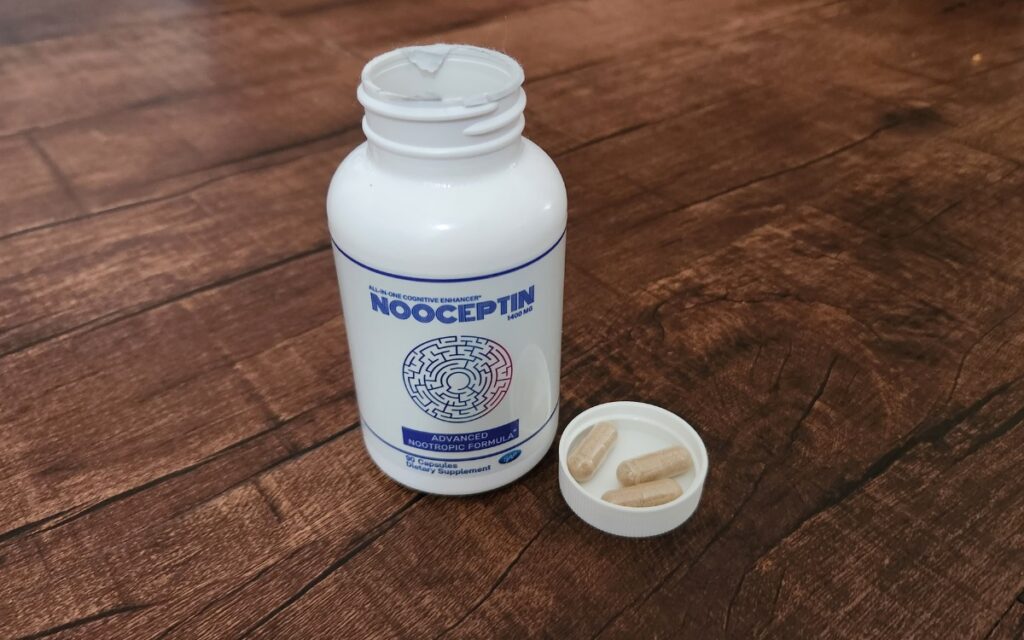
L-Theanine, an amino acid found in green tea, is known for its calming effects on the mind. Research has shown that taking 200-400 mg of L-theanine daily can help reduce stress and anxiety, especially in stressful situations [10].
It has also been observed to improve sleep quality and cognitive functions like verbal fluency and executive function [11].
These benefits make L-theanine a potential supplement for enhancing mental health, particularly in individuals dealing with stress-related symptoms and cognitive impairments.
However, long-term studies with larger groups are needed to fully establish its effectiveness.
Nooceptin contains 200 mg of L-theanine, which is enough to give you these reported benefits.
Bacopa Monnieri Extract (Proven)
Bacopa Monnieri is a traditional Ayurvedic herb that has shown potential to improve memory and cognitive performance, especially in older adults [12]. Studies suggest that Bacopa can enhance verbal learning, memory acquisition, and delayed recall [13].
It also improves cognitive domains like attention and information processing speed [14]. However, the evidence for its effects on cognition in healthy young adults is less clear [15].
Commonly recommended dosages range from 300 to 450 mg per day. While generally well-tolerated, it may cause gastrointestinal side effects in some individuals.
More research is needed to fully understand its impact on cognitive abilities and optimal dosages.
Nooceptin contains 150 mg of Bacopa, potentially being underdosed for brain-boosting benefits.
Ginkgo Biloba Extract (Speculative)
Ginkgo biloba is a plant derived from leaves and fruit that is used for cognitive enhancement. Its compounds act as antioxidants, improve blood flow, and have anti-inflammatory effects.
Rat experiments show Ginkgo biloba extract can help with chronic cerebral issues by modulating inflammatory mediators and the cholinergic system [16].
Clinical trials indicate it may improve working memory and processing speed [17]. However, its effectiveness in healthy individuals under 60 is debated [18].
Typical doses range from 120–300 mg daily. Side effects are rare but can include stomach irritation and headaches, which may thin blood, affecting those on certain medications.
Nooceptin contains 100 mg of Ginkgo Biloba, slightly under the recommended dosage in the literature.
Panax Ginseng Extract (Speculative)
Panax ginseng is prepared as either white or red ginseng. It has vasorelaxant and mildly hypotensive effects on the body’s nitric oxide production [19]. It enhances antioxidant enzyme activity and may reduce aging-related oxidative damage within rats [20].
Ginseng has shown potential in improving memory, particularly in age-related cognitive decline, and can enhance mental and physical resilience, reduce fatigue, and help the body adapt to stress [21].
Standard doses range from 200 mg of extract or 0.5 to 2 g of dry root daily. However, in large doses, it may cause overstimulation and increase blood pressure, and it is not recommended for those with acute asthma or hypertension.
Nooceptin contains an efficacious dose of 200 mg, potentially giving you these mental performance benefits.
Nooceptin Price
There are three bundle options for Nooceptin. I’ll break them down into price per serving.
| Nooceptin 1-Month Supply (30 servings) | Nooceptin 2-Months Supply (60 servings) | Nooceptin 3-Months Supply (90 servings) |
|---|---|---|
| $69.00 ($2.30/serving) | $138.00 ($2.30/serving) | $197.00 ($2.19/serving) |
As you can see, the moderate discount only applies to the 90-day serving bundle. This is likely because they claim you need to take Nooceptin for 90 days to see cognitive benefits.
Who Is Nooceptin For?
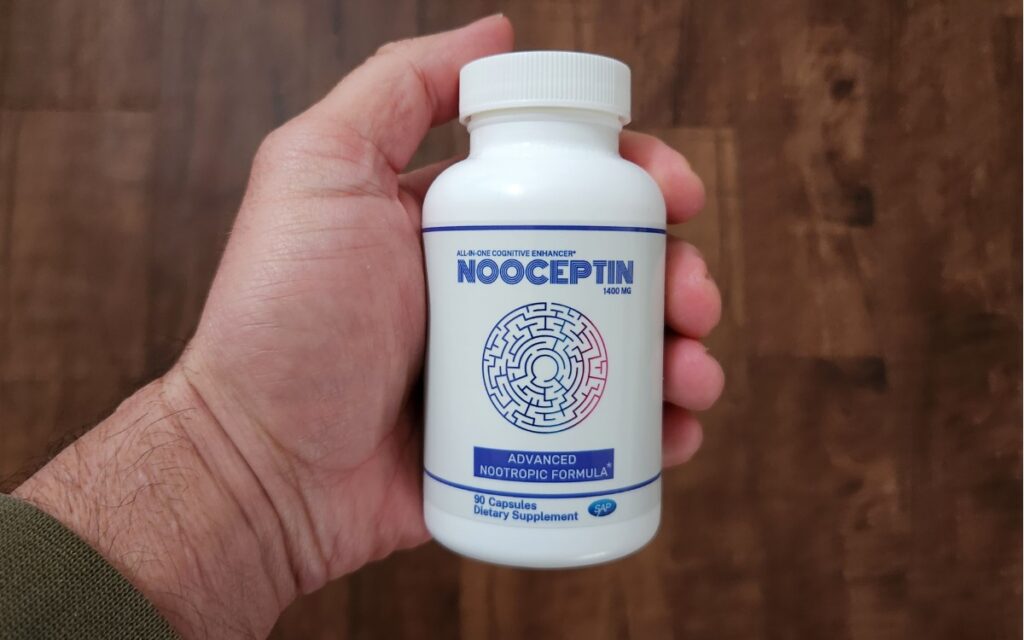
Students
In today’s fast-paced academic environment, students constantly search for ways to maximize their learning potential that aren’t addictive like Adderall. Nooceptin fits this quest perfectly by offering a blend of natural ingredients designed to sharpen mental acuity. Here’s how it caters to the needs of students:
Nooceptin helps students maintain laser-sharp focus, whether cramming for finals or trekking through dense academic material.
Gamers
The gaming community continuously evolves, with each advancement demanding quicker reflexes and heightened mental acuity. Nooceptin aims to meet these demands with its cognitive-enhancing properties:
The ingredients may increase focus, provide a calming effect, and decrease reaction time.
Nooceptin promises a competitive edge for gamers, potentially elevating gaming experiences from casual play to professional e-sports.
Busy Professionals
Market disruptors and corporate warriors know the importance of a sharp mind in business. Nooceptin caters to professionals who aim to stand out. Entrepreneurs often operate under high stakes, where focus and a strong memory are invaluable.
Further, a clear and functioning brain is non-negotiable for professionals making crucial daily decisions. Incorporating Nooceptin could enhance brain function and decision-making capabilities.
Older Adults
Maintaining cognitive health becomes a priority as we age. Nooceptin’s carefully selected natural nootropics are geared toward supporting the cognitive demands of older adults.
Many of the ingredients have been studied as a supplement to reduce the risk of Alzheimer’s disease and attenuate the decline in cognitive function.
Benefits Of Nooceptin
Enhance Focus & Attention
The ingredients in Nooceptin are designed to enhance cognitive function, including focus and attention. But you don’t have the instant high then crash associated with many other brain drugs.
While many of the ingredients are speculative, some research, whether human trials or mechanistic data on how they may enhance brain function, backs them up.
It’s why I’ve ranked Nooceptin the best nootropic for focus and concentration.
Nootropics are a new space in the supplement industry, so it’ll be many years until enough trials are done on these ingredients to “prove” they work under clinical conditions.
Stimulant Free
A big bonus is the stimulant-free formulation. Being stimulant-free means it may not give you instant euphoric feelings, but taking it consistently can aid in brain function. Further, you can take it in the evening without disturbing your sleep.
My Experience With Nooceptin

Initially, I was skeptical – it felt like yet another brain supplement in a saturated market. In the first few weeks, the changes were subtle. It wasn’t an overnight transformation but a gradual building of mental stamina.
Working on complex tasks became easier, and I noticed a marked improvement in my focus. I could sift through information with newfound sharpness, and ideas seemed to take shape more swiftly, words flowing freely when I wrote. Sitting and writing this review, I feel dialed in.
Interestingly, Nooceptin provides a calmer form of energy as a nootropic, unlike the buzz that comes with caffeine. I’d liken it to a steady current that powered through my day without the crash.
There was no fight-or-flight response, just a serene, unexpected, and welcoming focus.
I experienced no signs of jitteriness or anxiety, which I often get with stimulant-laced drinks. Instead, Nooceptin seemed to smooth out the stress, enabling me to approach my workload with less trepidationand more motivation.
The absence of side effects was a relief. One might expect headaches, stomach issues, or other physical complaints when trying something new, especially something that affects the brain. But, with Nooceptin, I encountered none of these.
User Reviews And Testimonials
I went on a quest to find user reviews and testimonials for Nooceptin. I couldn’t find a thing. Unfortunately, the Nooceptin website doesn’t display any reviews, and there is no Trustpilot or similar.
Nooceptin Side Effects
Some side effects may occur in certain populations, like stomach irritation and headaches, and it may thin blood, affecting those on certain medications. However, if you’re generally healthy, side effects are infrequent.
I personally didn’t notice any negative side effects. However, as with all supplements, consult a healthcare professional, especially if you are taking other medication or pregnant.
Nooceptin Alternatives
Braini
Peptylin, a silk protein peptide with neuroprotective effects and potential benefits for executive function; NeurXcel, which is strong in omega fatty acids; and Wild Canadian Blueberry extract, which is known for its antioxidant characteristics and cognitive support, are all key ingredients in Braini.
Braini is backed by clinical trials and a 60-day money-back guarantee, as well as a 30-day challenge to scientifically quantify changes in brain function.
Our Braini review contains an in-depth breakdown.
NooCube
These are well-known for their mental health advantages. Several compounds, such as Huperzine-A and Alpha GPC, remain speculative without additional investigation.
NooCube is intended to improve cognition and alertness without using stimulants, and the amounts of each ingredient are clearly labeled.
Because it gives different cognitive benefits without the jittery side effects associated with caffeine, NooCube is especially good for working professionals, students, elders, gamers, and combat athletes.
Our detailed analysis can be found in our NooCube review.
Alpha Brain
However, the product isn’t cheap. Its effectiveness varies depending on the user, with some disputing its efficiency due to possible underdosed ingredients.
The peer-reviewed trials conducted on Alpha Brain, supported by Onnit, demonstrate benefits in delayed verbal recall and executive functioning, although potential bias in these research raises concerns.
Our Alpha Brain review contains an in-depth breakdown.
Frequently Asked Nooceptin Questions
Can Nooceptin Transform Your Mental Clarity And Focus?
Nooceptin can enhance mental clarity and focus. Using Nooceptin with a healthy diet and consistent exercise routine will level your brain.
Is Nooceptin FDA-approved?
Nooceptin lacks FDA approval, which is a consideration for those looking to use the supplement. However, no nootropic supplement is FDA-approved.
Are There Any Side Effects Associated With Nooceptin?
While side effects are possible, they are not commonly reported with Nooceptin. Individual experiences may vary.
Does Nooceptin Interact With Other Medications?
The interactions of Nooceptin with other medications have not been widely documented, so consult your healthcare provider before use.
How Does Nooceptin Impact Sleep Quality?
Nociceptin has no stimulants, so it does not negatively affect sleep.
Conclusion
As far as nootropics go, Nooceptin is a satisfactory formulation. Better brands and formulations may make better alternatives. However, it’s worth testing Nooceptin as a non-stimulant brain enhancer.
Nooceptin
Nooceptin Nootropic Brain Supplement
Non-Stimulant Nootropic For Long-Term Change
Boost brain power & reduce cognitive decline.
CHECK CURRENT DEALSReferences
- Lai, P. L., Naidu, M., Sabaratnam, V., Wong, K. H., David, R. P., Kuppusamy, U. R., … & Malek, S. N. A. (2013). Neurotrophic properties of the Lion’s mane medicinal mushroom, Hericium erinaceus (Higher Basidiomycetes) from Malaysia. International journal of medicinal mushrooms, 15(6).
- La Monica, M. B., Raub, B., Ziegenfuss, E. J., Hartshorn, S., Grdic, J., Gustat, A., … & Ziegenfuss, T. N. (2023). Acute Effects of Naturally Occurring Guayusa Tea and Nordic Lion’s Mane Extracts on Cognitive Performance. Nutrients, 15(24), 5018.
- Chong, P. S., Fung, M. L., Wong, K. H., & Lim, L. W. (2020). Therapeutic potential of Hericium erinaceus for depressive disorder. International journal of molecular sciences, 21(1), 163.
- Docherty, S., Doughty, F. L., & Smith, E. F. (2023). The Acute and Chronic Effects of Lion’s Mane Mushroom Supplementation on Cognitive Function, Stress and Mood in Young Adults: A Double-Blind, Parallel Groups, Pilot Study. Nutrients, 15(22), 4842.
- Phan, C. W., Lee, G. S., Hong, S. L., Wong, Y. T., Brklja?a, R., Urban, S., … & Sabaratnam, V. (2014). Hericium erinaceus (Bull.: Fr) Pers. cultivated under tropical conditions: isolation of hericenones and demonstration of NGF-mediated neurite outgrowth in PC12 cells via MEK/ERK and PI3K-Akt signaling pathways. Food & Function, 5(12), 3160-3169.
- Nakazaki, E., Mah, E., Sanoshy, K., Citrolo, D., & Watanabe, F. (2021). Citicoline and memory function in healthy older adults: a randomized, double-blind, placebo-controlled clinical trial. The Journal of Nutrition, 151(8), 2153-2160.
- Jasielski, P., Pi?del, F., Piwek, M., Rocka, A., Petit, V., & Rejdak, K. (2020). Application of citicoline in neurological disorders: a systematic review. Nutrients, 12(10), 3113.
- Cropley, M., Banks, A. P., & Boyle, J. (2015). The effects of Rhodiola rosea L. extract on anxiety, stress, cognition and other mood symptoms. Phytotherapy research, 29(12), 1934-1939.
- Malík, M., & Tlustoš, P. (2022). Nootropics as cognitive enhancers: types, dosage and side effects of smart drugs. Nutrients, 14(16), 3367.
- Hidese, S., Ogawa, S., Ota, M., Ishida, I., Yasukawa, Z., Ozeki, M., & Kunugi, H. (2019). Effects of L-theanine administration on stress-related symptoms and cognitive functions in healthy adults: a randomized controlled trial. Nutrients, 11(10), 2362.
- Williams, J. L., Everett, J. M., D’Cunha, N. M., Sergi, D., Georgousopoulou, E. N., Keegan, R. J., … & Naumovski, N. (2020). The effects of green tea amino acid L-theanine consumption on the ability to manage stress and anxiety levels: A systematic review. Plant foods for human nutrition, 75, 12-23.
- Calabrese, C., Gregory, W. L., Leo, M., Kraemer, D., Bone, K., & Oken, B. (2008). Effects of a standardized Bacopa monnieri extract on cognitive performance, anxiety, and depression in the elderly: a randomized, double-blind, placebo-controlled trial. The journal of alternative and complementary medicine, 14(6), 707-713.
- Morgan, A., & Stevens, J. (2010). Does Bacopa monnieri improve memory performance in older persons? Results of a randomized, placebo-controlled, double-blind trial. The journal of alternative and complementary medicine, 16(7), 753-759.
- Kongkeaw, C., Dilokthornsakul, P., Thanarangsarit, P., Limpeanchob, N., & Scholfield, C. N. (2014). Meta-analysis of randomized controlled trials on cognitive effects of Bacopa monnieri extract. Journal of ethnopharmacology, 151(1), 528-535.
- Pase, M. P., Kean, J., Sarris, J., Neale, C., Scholey, A. B., & Stough, C. (2012). The cognitive-enhancing effects of Bacopa monnieri: a systematic review of randomized, controlled human clinical trials. The Journal of Alternative and Complementary Medicine, 18(7), 647-652.
- Kim, M. S., Bang, J. H., Lee, J., Han, J. S., Baik, T. G., & Jeon, W. K. (2016). Ginkgo biloba L. extract protects against chronic cerebral hypoperfusion by modulating neuroinflammation and the cholinergic system. Phytomedicine, 23(12), 1356-1364.
- Stough, C., Clarke, J., Lloyd, J., & Nathan, P. J. (2001). Neuropsychological changes after 30-day Ginkgo biloba administration in healthy participants. International Journal of Neuropsychopharmacology, 4(2), 131-134.
- Canter, P. H., & Ernst, E. (2007). Ginkgo biloba is not a smart drug: an updated systematic review of randomised clinical trials testing the nootropic effects of G. biloba extracts in healthy people. Human Psychopharmacology: Clinical and Experimental, 22(5), 265-278.
- Yu, J., Eto, M., Akishita, M., Kaneko, A., Ouchi, Y., & Okabe, T. (2007). Signaling pathway of nitric oxide production induced by ginsenoside Rb1 in human aortic endothelial cells: a possible involvement of androgen receptor. Biochemical and biophysical research communications, 353(3), 764-769.
- Fu, Y., & Ji, L. L. (2003). Chronic ginseng consumption attenuates age-associated oxidative stress in rats. The Journal of nutrition, 133(11), 3603-3609.
- Nocerino, E., Amato, M., & Izzo, A. A. (2000). The aphrodisiac and adaptogenic properties of ginseng. Fitoterapia, 71, S1-S5.
Affiliate Disclosure:
The links provided may earn us a small commission at no additional cost to you if you choose to purchase the recommended product. This support allows our research and editorial team to continue providing high-quality recommendations. As a participant in the Amazon Services LLC Associates Program, an affiliate advertising initiative, we are able to earn advertising fees through providing links to products on Amazon.com. Please rest assured that we only recommend high-quality products.

